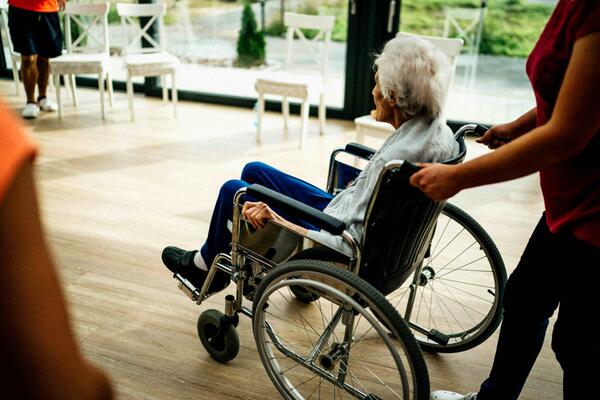
What to Do if You Suspect Elder Abuse in a Nursing Home
If you’ve selected a nursing home for one of your loved ones, then presumably, you researched it carefully. Maybe you talked to some other individuals you know who put their older relatives in that same facility. You likely did some online research, looking at reviews and scouring the internet for reports of anything improper happening at that location.
However, even if you select a nursing home for an older adult with the utmost care, elder abuse can still occur. If that happens, you’ll need to immediately look into the best way to select a personal injury lawyer and to retain them without delay.
Let’s talk in more detail about what you should do if you suspect elder abuse in the nursing home you selected for one of your older relatives. It’s not something you can ever take lightly, and you will need to act quickly and decisively if you think that’s going on.
What Does Elder Abuse Mean?
First, let’s briefly talk about elder abuse so we can be sure you know what we mean when we use this term. Elder abuse basically means any action that harms an older adult. That’s usually physical abuse, but mental and psychological abuse can also take place.
What Does the Term “Nursing Home” Mean?
As for the term “nursing home,” we should make the distinction that you might have an older relative in what the medical community calls assisted living. In that situation, you might have older adults living in a location where they still have some degree of autonomy. They may have staff members there who can prepare their meals and clean their rooms, but the residents can still take care of themselves for the most part.
If you have someone in a nursing home, that’s a little different. “Nursing home” means a facility where you have older adults who can’t take care of themselves as well anymore.
Maybe they have limited mobility. In addition to the staff cooking their meals and washing their clothes, they may need to help the residents bathe themselves, feed themselves, etc.
Talk to Your Older Relative Frequently
If you’re worried about elder abuse in a nursing home, then it helps to talk to your older relative there often. If they’re at least somewhat lucid, then maybe they can communicate what’s going on to you.
If you gave them a smartphone that they can use, then maybe your older relative can call or text you to let you know there’s an abuse or neglect situation happening. If they can’t operate a cell phone anymore, then maybe they can warn you via a communal phone.
Visit Them Often
If you suspect abuse, then you can also go to visit your relative in person often. Ideally, you will have them at a facility that you can get to without having to travel very far.
When you visit, talk to your older relative with no members of the staff around. Assess how they’re doing. If you see any suspicious marks on them, then ask about them.
If your older relative can’t communicate to you what’s going on, then talk to the staff. Ask them some pointed questions about those marks.
If you don’t like their answers, then you remove your older relative from the facility immediately. If you’re not entirely certain about what’s going on, then you might try hiding a camera in your relative’s room to see if you can record the abuse. That’s intruding on their privacy, but if you’re worried about a possible abuse situation, you might feel it’s worth it.
Assess Their Mood
You can also assess the mood of your older relative when you stop by to visit them. Even if they don’t have a mark on them, you might still suspect psychological or emotional abuse. If they seem unhappy or express reluctance to talk about what’s wrong, that’s often a potential giveaway.
Take Legal Action
If you feel strongly that you’re dealing with an elder abuse situation, then you can contact a lawyer once you have your relative out of there. If they can report on what a staff member or members did, then they can testify on their own behalf at trial. You can probably file a personal injury lawsuit against the responsible individuals or the facility.
If your older relative can’t speak for themselves, then you still might use medical reports detailing their injuries to win a personal injury case.